by Lois Tverberg
The sower went out to sow his seed; and as he sowed, some fell beside the road, and it was trampled under foot and the birds of the air ate it up. Other seed fell on rocky soil, and as soon as it grew up, it withered away, because it had no moisture. Other seed fell among the thorns; and the thorns grew up with it and choked it out. Other seed fell into the good soil, and grew up, and produced a crop a hundred times as great.” As He said these things, He would call out, “He who has ears to hear, let him hear.” His disciples began questioning Him as to what this parable meant. And He said, “To you it has been granted to know the secrets of the Kingdom of God, but to the rest it is in parables, so that seeing they may not see, and hearing they may not understand. Therefore I speak to them in parables; because while seeing they do not see, and while hearing they do not hear, nor do they understand. Now the parable is this: the seed is the word of God… (Luke 8:4-11)
The parable of the sower is very familiar to Christians, but the punchline doesn’t quite make sense. Right after giving four illustrations of soil as it represents hearts that respond to God’s word, Jesus inserts a line about the “secrets of the Kingdom of God” that sounds as if he deliberately spoke in a coded riddles so that no one but an inner circle could understand.
Many have scratched their heads. Is that really what Jesus was saying? Reading this story in light of the Jewish culture in which it was given can solve several mysteries. Knowing more about its language, its use of Scripture, and how it fits into Jesus’ time can help us see its deeper message.
Other Parables About Four Types
First of all, it is important to know that parables were used widely in rabbinic preaching. There are over 4,000 parables in existence even to this day.1 They were used to illustrate a point with a concrete story, not to be secretive. Certainly Jesus’ point is usually quite clear. In the Good Samaritan parable, who can’t see why the Samaritan was a better neighbor than those who ignored the wounded man?
Listening to Jesus’ parables in light of other rabbinic sayings is very helpful for understanding them. He uses a familiar format, but gives it a unique flavor to teach about his kingdom.2 The “sower” parable sounds much like other “Four Types” parables, which compare four possible behaviors and their results:
There are four qualities in disciples: he who quickly understands and quickly forgets, his gain disappears in his loss; he who understands with difficulty and forgets with difficulty, his loss disappears in his gain; he who understands quickly and forgets with difficulty, his is a good portion; he who understands with difficulty and forgets quickly, his is an evil portion. (Pirke Avot 5:15)3
There are four characters among those who attend the house of study: he who goes and does not practice secures the reward for going; he who practices but does not go secures the reward for practicing; he who goes and practices is a saint; he who neither goes nor practices is a wicked man. (Pirke Avot 5:17)
 Many parables include a four-fold comparison, but interestingly, these two sayings actually deal with a subject very similar to that of the parable of the sower: the response of a listener to the Word of God. The first is about a disciple remembering a rabbi’s teaching, and the second is about the reward for study and practicing God’s word.
Many parables include a four-fold comparison, but interestingly, these two sayings actually deal with a subject very similar to that of the parable of the sower: the response of a listener to the Word of God. The first is about a disciple remembering a rabbi’s teaching, and the second is about the reward for study and practicing God’s word.
These two sayings show the Jewish emphasis on lifelong study of the Bible, either through attending the “house of study” (bet midrash) at a local synagogue, or by being a disciple of a rabbi. We can see that God chose to send Jesus to a culture that greatly emphasized the study of Scripture. His words built upon and expanded the sayings of other rabbis, and brought them to a new level.
Another parable is similar in an additional way:
There are four types among those who sit in the presence of the rabbis: the sponge, the funnel, the strainer, and the sieve. “The sponge,” which soaks up everything. “The funnel,” which takes in at this end and lets out at the other. “The strainer,” which lets out the wine and retains the dregs. “The sieve,” which removes the chaff and retains the fine flour. (Pirke Avot, 5:18)
This third parable also talks about the learning of disciples, and this one initially might sound secretive with words like “sponge” and “funnel,” etc. Upon further reflection, however, we can see that the imagery is meant to illustrate a point. Obviously, one doesn’t want to be a funnel that loses everything that it takes in. The best thing not to be the sponge either, a person who parrots answers without discernment. Rather, a sieve is the best, because that person learns what is worthwhile and ignores what is not.
Notice that this parable also doesn’t include an explanation, because the audience was supposed to be able to figure it out. Not explaining a parable was common in rabbinic preaching.
Interestingly, these three rabbinic parables all focus on learning the Scriptures. Like them, Jesus’ words were a call to examine ourselves to see which type of listener that we are. Are our hearts hard to God’s word, or are we shallow, or are we distracted by wealth or daily living?
The same good seed is sown in all places, but whether it bears fruit is dependent on the soil. This parable should therefore be called “The Parable of the Soils” rather than “The Parable of the Sower,” because the point is that the impact of the Word is dependent on the listener, not on the message itself (the seed) and not on God (the sower), who shares with people whether or not they are likely to respond.
If this is the message of Jesus’ parable, it actually unlocks the sentences in the middle. If Jesus was saying that good seed can’t grow well in bad soil, then it follows that the reason people didn’t understanding Jesus is not because his words were deliberately confusing, but because of their lack of desire to obey it. The disciples, on the other hand, were responding in obedience. Only then did God’s truths become clear to them in their own personal experience, so that they would know the “secrets of the Kingdom of God.” (Psalm 25:14)
Prophetic Irony in Jesus’ Words
There are a couple more details that support this conclusion. Another rabbinic habit that Jesus had was to allude to a Scripture passage with the assumption that the audience would know its broader context.3 This was common because Jewish society was well-versed in the Bible. Here, Jesus quoted from Isaiah when he said,
Render the hearts of this people insensitive, their ears dull, and their eyes dim, otherwise they might see with their eyes, hear with their ears, understand with their hearts, and return and be healed. (Isaiah 6:10)
This passage is from the commissioning of the prophet Isaiah as God’s messenger. Knowing its greater context, Jesus’ listeners would have understood its great irony: God commissioned Isaiah to go out and preach to his people, and God certainly gave him clear words to say.
God was not telling Isaiah to confuse the people, but to proclaim the truth, even though his teaching would be rejected by most. Jesus was saying the same thing — that like the prophets he spoke to clarify God’s word, but from hardness of heart, many would not hear or obey him. In both instances, God’s greatest desire was to see his people return to him and be healed, but with frustrated irony, he proclaims that for the most part, they will not.
Another insight comes from the language of Jesus’ words. In Hebrew, the word “hear,” shema, doesn’t just mean to listen, but also to respond and obey.4 When we read the phrase, “He who has ears to hear, let him hear,” we may ignore it as a common exclamation in Jesus’ day. In this passage, however, it seems to be Jesus’ main point — if you hear, than you must obey as well! The entire passage is about hearing and obedience, and how the state of our hearts impacts how we shema, hear and obey.
The Kingdom and the Hundredfold Yield
 The fact that the crop the good soil yields is a “hundredfold” is significant. In biblical times, sowing a crop and reaping a hundredfold was unheard of, while a five to tenfold crop was all that was expected. It is quite possible that Jesus was again using the rabbinic habit of Scripture allusion with the phrase a “hundredfold,” because it occurs only once in all of the Hebrew Bible, in Genesis 26:12, “Now Isaac sowed in that land and reaped in the same year a hundredfold.”
The fact that the crop the good soil yields is a “hundredfold” is significant. In biblical times, sowing a crop and reaping a hundredfold was unheard of, while a five to tenfold crop was all that was expected. It is quite possible that Jesus was again using the rabbinic habit of Scripture allusion with the phrase a “hundredfold,” because it occurs only once in all of the Hebrew Bible, in Genesis 26:12, “Now Isaac sowed in that land and reaped in the same year a hundredfold.”
The rabbis loved to discuss the stories of the patriarchs, and Isaac’s shocking yield of a hundredfold would have quite memorable, and completely impossible without divine help. It was an amazing miracle that God alone could achieve! In the same way, Jesus was saying that the impact of God’s word on those who obey him will be obviously miraculous, beyond anything a human could do on his or her own. While responding to God’s call takes our willingness, the spiritual fruit is so miraculous that it can only come from God!
A Possible Reason for this Parable
A question that must have been on his listeners minds was, “If you are the Messiah, why aren’t you a glorious king that has taken charge by now? Where is your army? Why are so many people not following you? Why isn’t your kingdom huge and powerful?” I wonder if this parable, as well as the ones about the yeast and the mustard seed, were intended as a response. Jesus was defending the fact that he truly is the Messiah. God’s reign on earth had begun on earth and was expanding, even though it was not visible yet.
As Jesus tells it, God is like a farmer that sows a field knowing that much of the land is poor — that many hearts are not open to him. He knows that many will not respond to his call, but this will not defeat his purposes. He knows that like a tiny mustard seed that grows into an enormous tree, when his kingdom takes hold of the few who will receive it, what an incredible impact it will have!5
The Importance of Discipleship for the Kingdom
Understanding the parable can yield insights for us today. Obviously, we need to examine ourselves and look at the “soil” of our hearts. Are we distracted by the cares of this world? How can we be more obedient to do God’s will?
It’s easy for us to insult Jesus’ original audience and assume that he was tossing them aside by telling them how dull they were to his preaching. Are we so different than them, though? Who of us isn’t choked by weeds in our lives? How many of us truly follow wherever Christ leads?
One thing the parable says may surprise us. We often focus on evangelism — the sharing of the Gospel with non-believers — as the central goal of the church, and believe that the most significant event in a person’s life is the day they accept Jesus as Savior. In Jesus’ parable, however, the sprouting of the seed is not the goal, but only an important beginning.
 We like to count the number of hands that go up at an altar call as a way of seeing the kingdom expand, but in this parable, the counting is only done at the end, after the fruit has matured. As critical as evangelism is, Jesus is saying that discipleship is just as important to God’s kingdom.
We like to count the number of hands that go up at an altar call as a way of seeing the kingdom expand, but in this parable, the counting is only done at the end, after the fruit has matured. As critical as evangelism is, Jesus is saying that discipleship is just as important to God’s kingdom.
Jesus’ words about becoming a disciple are tough to hear! The road is narrow and we need to count the cost and take up our cross. It’s discouraging to hear how few will really respond, given the thorns and rocks that are so common in this world.
But Jesus promises that through an obedient disciple he can do truly miraculous things to expand his kingdom — far beyond the dreams of human ability! This is what should make us want to set our hearts and wills to following him. Only then will we know the secrets of the Kingdom of God.
~~~~
1 It should be noted that Jesus’ parables are among the earliest in Jewish literature, and are highly sophisticated compared to most. Ironically, thousands of parables are found in rabbinic literature but none are found in intertestamental literature, Dead Sea Scrolls, Philo or Josephus. Nonetheless, many NT scholars read only these (and other pre-70 AD) sources but avoid rabbinic material because it post-dates the New Testament.
2 C. Safrai points out the link between study and the kingdom in the sower/soils parable in “The Kingdom of Heaven and the Study of Torah” in Jesus’ Last Week: Jerusalem Studies in the Synoptic Gospels, Vol. I, (ed. R. S. Notley et al; Brill, London, 2006), pp 173-175.
3 Pirke Avot is the Hebrew name for “Sayings of the Fathers,” a collection of rabbinic teachings from 200 BC to 200 AD that was collected in the Mishnah.
4 See “Jesus’ Habit of Hinting.”
5 For more on the word shema, see p. 3-4 in Listening to the Language of the Bible, by Tverberg & Okkema (En-Gedi Resource Center, 2004).
6 Joachim Jeremias, The Parables of Jesus, pp. 149 – 151. For more on the Kingdom of God, see “The Kingdom of Heaven is Good News.”
Photos: Plant [CC], Elijah Hail on Unsplash, Johannes Plenio on Unsplash, Sushobhan Badhai on Unsplash


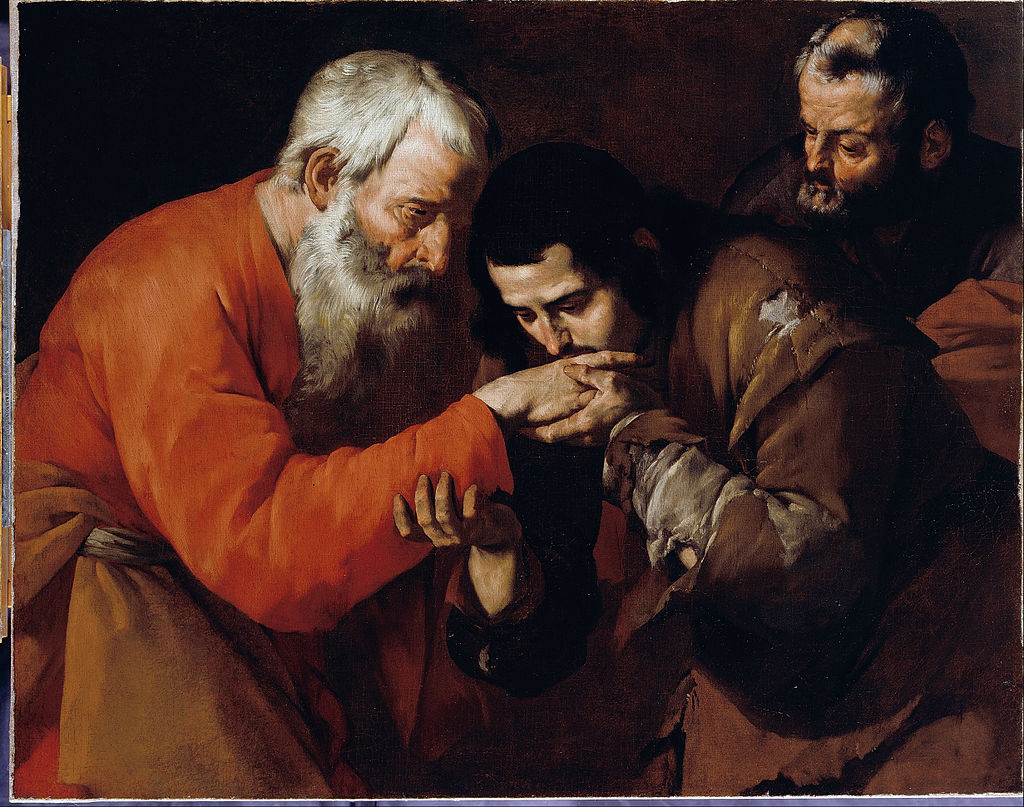 We often don’t consider that the older son is a picture of a broken relationship too, who even though outwardly he is part of the family, he really sees the father only as a source of reward. He is a person who may be quite religious, but misunderstands God’s enormous love. Rather than valuing an intimate, trusting relationship with God, his feeling is that he must somehow earn God’s favor, and doesn’t see that he is loved in spite of all of observance and good works.
We often don’t consider that the older son is a picture of a broken relationship too, who even though outwardly he is part of the family, he really sees the father only as a source of reward. He is a person who may be quite religious, but misunderstands God’s enormous love. Rather than valuing an intimate, trusting relationship with God, his feeling is that he must somehow earn God’s favor, and doesn’t see that he is loved in spite of all of observance and good works.
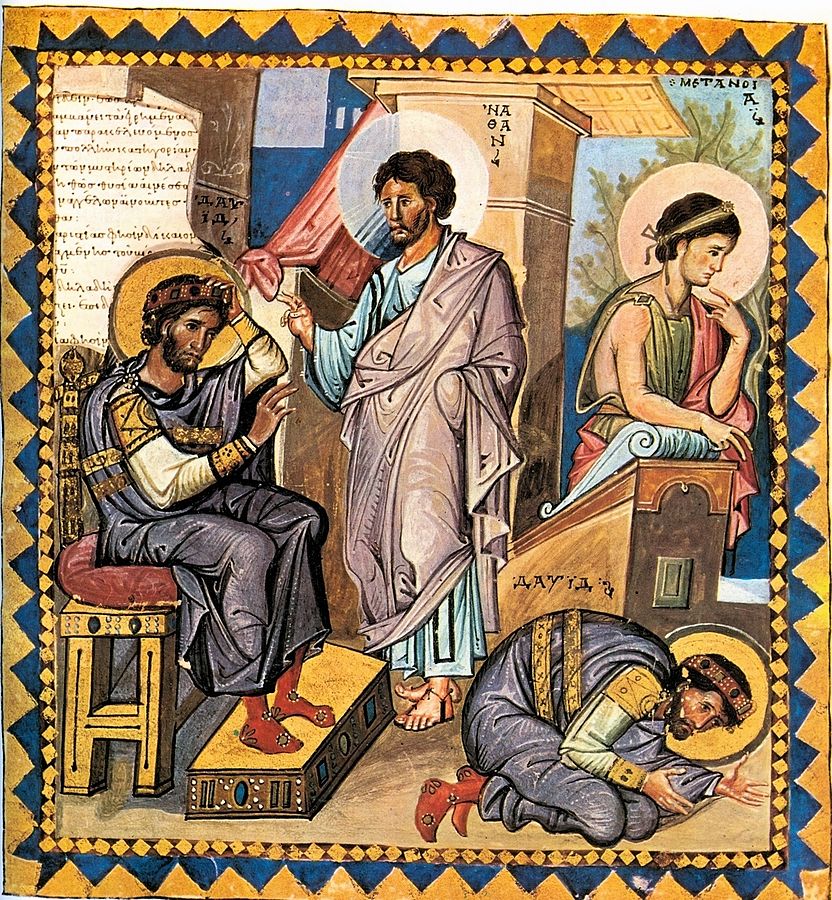 “The LORD sent Nathan to David. When he came to him, he said, There were two men in a certain town, one rich and the other poor. The rich man had a very large number of sheep and cattle, but the poor man had nothing except one little ewe lamb he had bought. He raised it, and it grew up with him and his children. It shared his food, drank from his cup and even slept in his arms. It was like a daughter to him.
“The LORD sent Nathan to David. When he came to him, he said, There were two men in a certain town, one rich and the other poor. The rich man had a very large number of sheep and cattle, but the poor man had nothing except one little ewe lamb he had bought. He raised it, and it grew up with him and his children. It shared his food, drank from his cup and even slept in his arms. It was like a daughter to him.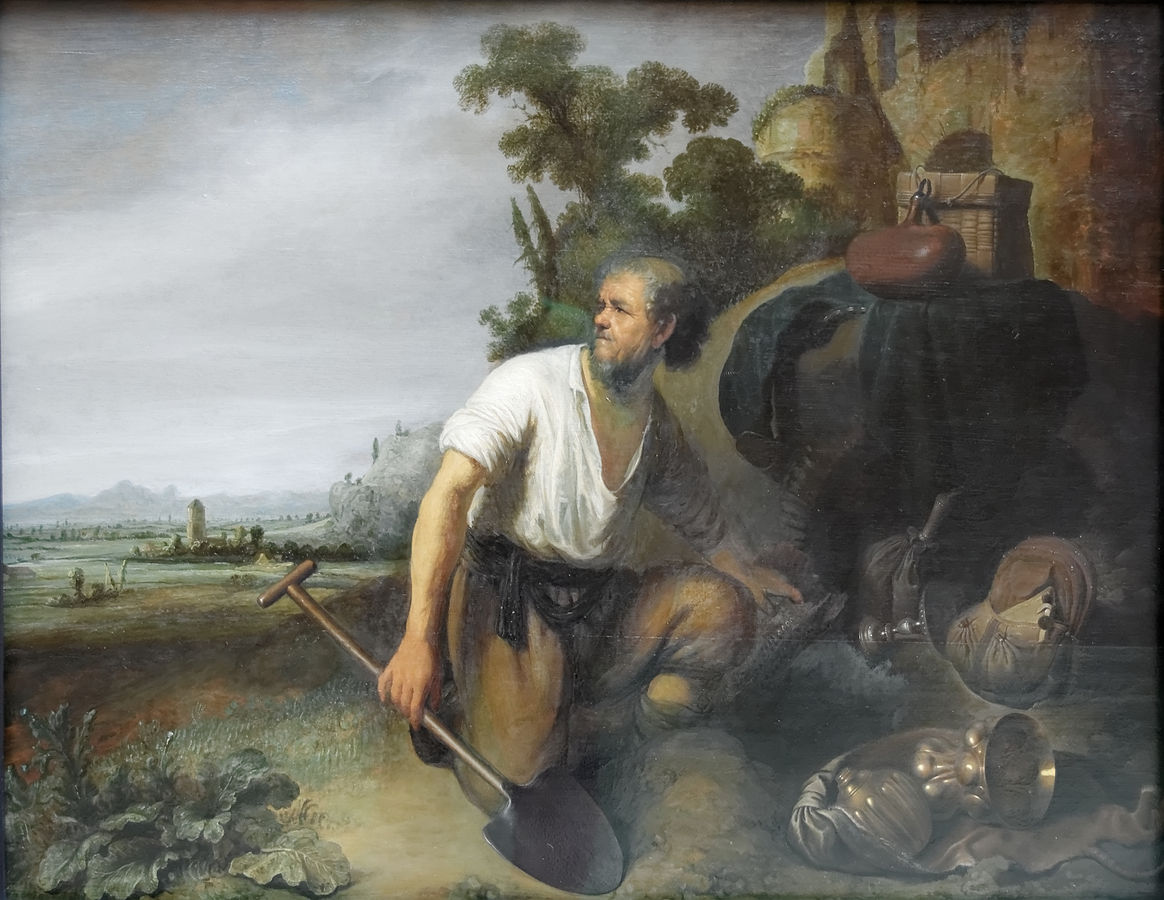 Do not store up for yourselves treasures on earth, where moth and rust destroy, and where thieves break in and steal. But store up for yourselves treasures in heaven, where neither moth nor rust destroys, and where thieves do not break in or steal; for where your treasure is, there your heart will be also. Matthew 6:19-21
Do not store up for yourselves treasures on earth, where moth and rust destroy, and where thieves break in and steal. But store up for yourselves treasures in heaven, where neither moth nor rust destroys, and where thieves do not break in or steal; for where your treasure is, there your heart will be also. Matthew 6:19-21

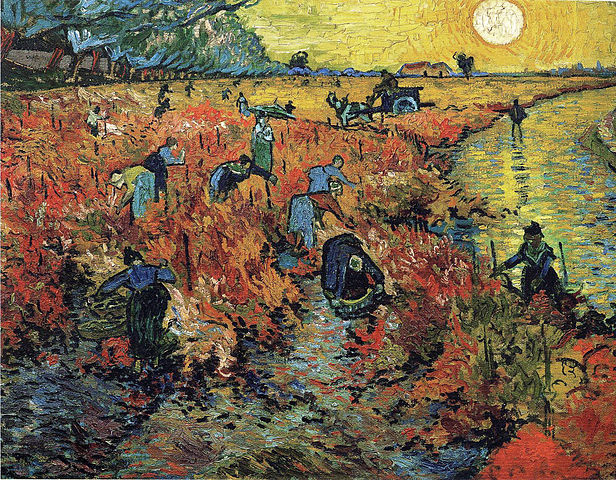
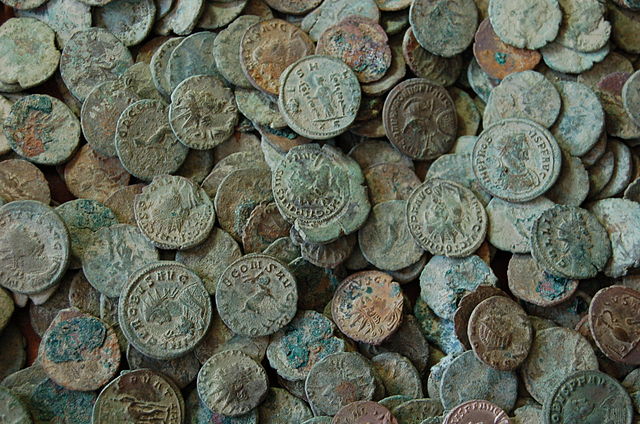 One thing to note is that the rich man probably lived far away and employed the manager to keep track of his loan repayments. Loan managers, like tax collectors, were paid commissions from the accounts that they oversaw. Thus, the more they could collect from the debtors, the more they earned.
One thing to note is that the rich man probably lived far away and employed the manager to keep track of his loan repayments. Loan managers, like tax collectors, were paid commissions from the accounts that they oversaw. Thus, the more they could collect from the debtors, the more they earned.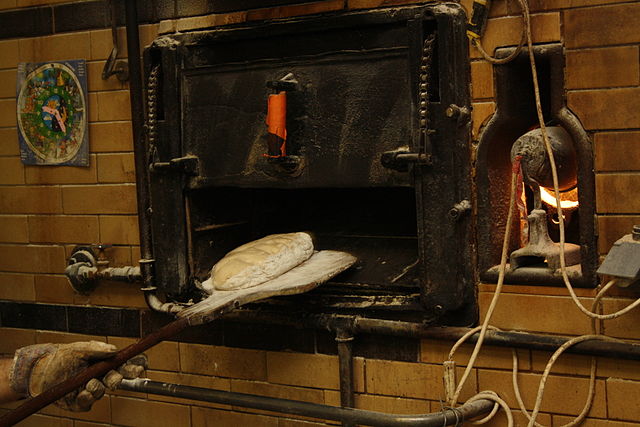 It is interesting that he uses “leaven” in a positive way, when it is uniformly used negatively throughout the Bible. This may be because of how leavening was done in biblical times. To make bread dough rise, a lump of old, fermented dough from the day before would be mixed into the new lump of dough. This deliberate contamination was what caused the bread to rise. Outside of this parable, the image is always negative.
It is interesting that he uses “leaven” in a positive way, when it is uniformly used negatively throughout the Bible. This may be because of how leavening was done in biblical times. To make bread dough rise, a lump of old, fermented dough from the day before would be mixed into the new lump of dough. This deliberate contamination was what caused the bread to rise. Outside of this parable, the image is always negative.
 “What is the kingdom of God like? What shall I compare it to? It is like a mustard seed, which a man took and planted in his garden. It grew and became a tree, and the birds of the air perched in its branches.” Luke 13:18-19
“What is the kingdom of God like? What shall I compare it to? It is like a mustard seed, which a man took and planted in his garden. It grew and became a tree, and the birds of the air perched in its branches.” Luke 13:18-19
